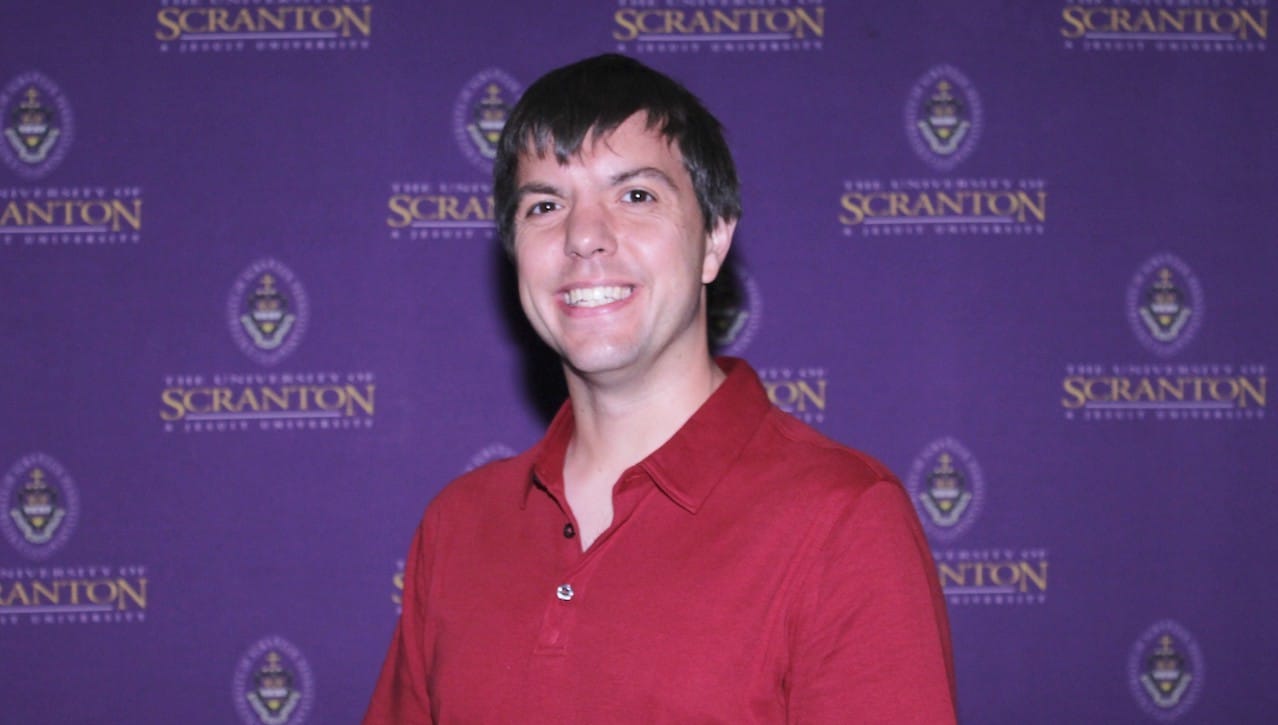Physics Professor Awarded $481,260 NASA Research Grant

Nathaniel Frissell, Ph.D., assistant professor in The University of Scranton’s Physics and Engineering Department, was awarded a $481,260 grant through the NASA’s Space Weather Applications Operations 2 Research Program. He will serve as the principal investigator for the research project entitled, “Enabling Space Weather Research with Global Scale Amateur Radio Datasets,” with collaborators at the Massachusetts Institute of Technology Haystack Observatory and The University of Alabama.
According to Dr. Frissell, the grant will fund “the development of an empirical model for the prediction of traveling ionospheric disturbances (TIDs) in high frequency radio communications while investigating the geophysical drivers of these disturbances.” The grant funds will be disbursed over a two-year period.
“This grant includes significant funding for participation of Scranton undergraduate students in this research, as well as support for new computation resources,” said Dr. Frissell.
Dr. Frissell explained that the predictive, empirical TID models the research project will develop will use data collected by automated, Global-scale radio communication observation networks that are voluntarily operated by the amateur radio community. Undergraduate students will help the faculty researchers create algorithms used for the model development. This new NASA award complements the five-year, $616,054 NSF CAREER grant Dr. Frissell received in 2020, which aims to understand the source of the TIDs observed in both the amateur radio data and other scientific datasets.
In 2019, Dr. Frissell received a $1.3 million National Science Foundation (NSF) grant to fund a three-year initiative to measure modulations produced in the Earth’s upper atmosphere. The grant supports a collaborative team to develop a modular, multi-instrument, ground-based space science observation platform known as the HamSCI Personal Space Weather Station that will be used to study variability in the coupled geospace system and better understand high frequency radio propagation.
This is the second research project for which Dr. Frissell has received funding from NASA. A space physicist, Dr. Frissell is among the researchers working on a NASA Living With a Star project entitled, “Wave-Driven Asymmetries in the Ionosphere-Thermosphere due to Asymmetries in the Northern and Southern Polar Vortices.” That project is being led by Richard Collins, Ph.D., principal investigator, of the University of Alaska Fairbanks Geophysical Institute.
Dr. Frissell joined the faculty at Scranton in the fall of 2019. He earned his bachelor’s degree from Montclair State University and his master’s degree and Ph.D. from the Virginia Polytechnic Institute and State University. He is the founder and lead organizer of the international citizen science space physics research collective known as the Ham Radio Science Citizen Investigation (HamSCI.org). Dr. Frissell also serves as advisor to the student W3USR University of Scranton Amateur Radio Club.






